
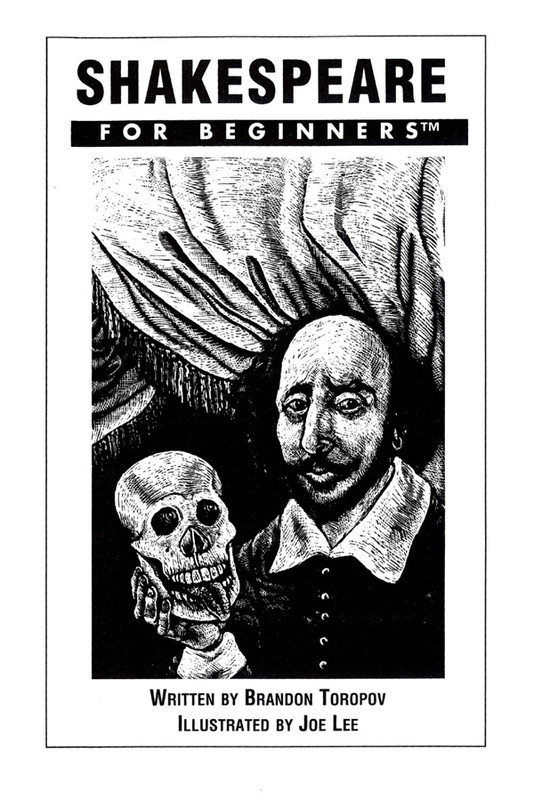
For Beginners LLC
155 Main Street, Suite 211
Danbury, CT 06810 USA
www.forbeginnersbooks.com
Text: 1997, 1999 Brandon Toropov
Illustrations: 1997, 1999 Joe Lee
All rights reserved. No part of this publication may be reproduced, stored in a retrieval system, or transmitted in any form or by any means, electronic, mechanical, photocopying, recording, or otherwise, without prior permission of the publisher.
A For Beginners Documentary Comic Book
Originally published by Writers and Readers Publishing, Inc.
Copyright 1997, 1999
Cataloging-in-Publication information is available from the Library of Congress.
eISBN: 978-1-939994-22-6
For Beginners and Beginners Documentary Comic Books are published by For Beginners LLC.
v3.1
 ROM BRANDON TOROPOV:
ROM BRANDON TOROPOV:
For Jim Clay, now working on a new show.
ACKNOWLEDGMENTS
My heartfelt thanks go out to Glenn Thompson, Ron David, Glenn KnicKrehm, Leslie Hamilton, Bob Tragert and above all to my wife Mary, whose patience and encouragement knew no bounds.
 LLUSTRATION DEDICATION FROM JOE LEE:
LLUSTRATION DEDICATION FROM JOE LEE:
To Mary Bess Bohon, a Dark Lady who has brought such illumination to my life.
And to Ron David, as well, for providing me with such opportunities to expand my creativity and for accepting them when I do.
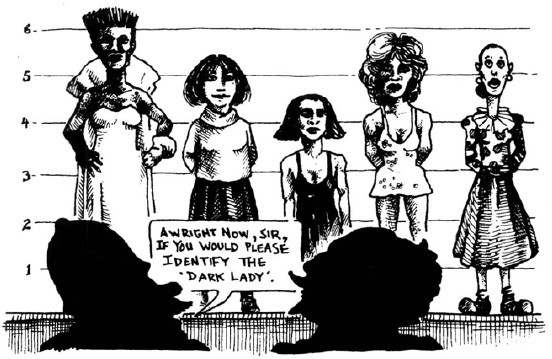
Who Is Shakespeare?
The Plays
 or more than 350 years, William Shakespeare has been the worlds most popular playwright. On stage, in movies, and on television, his plays are watched by eager audiences all over the world. People read his plays again and again for the sheer pleasure.
or more than 350 years, William Shakespeare has been the worlds most popular playwright. On stage, in movies, and on television, his plays are watched by eager audiences all over the world. People read his plays again and again for the sheer pleasure.


That is where Shakespeare for Beginners comes in. Even if youve had trouble with Shakespeare in the past, Shakespeare for Beginners will make him accessibleand fun. This book will help you enjoy and appreciate Shakespeare quickly, without feeling like youre doing home-work to prepare for him.
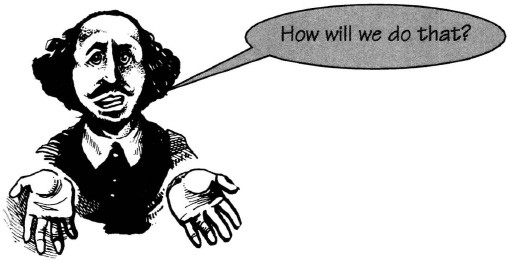
 imple, really: For the most part, we will let the stories tell themselves.
imple, really: For the most part, we will let the stories tell themselves.
Shakespeare was capable is capable of stopping people in their tracks and persuading them to listen to a story. The writing Shakespeare is best known for is work for the theater, and theater is, first and foremost, direct.
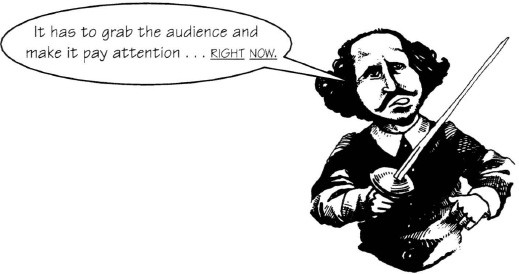
Newcomers to Shakespeare are often surprised to find that his plays are filled with action, his characters are believable, and the situations they find themselves in are exactly like our owngreed, power, ambition, love, jealousy, old age, racism.

People havent changed much in the last four centuries. It is both comforting and terrifying to see aspects of your own personality magnified by Shakespeares genius in the overthinking Prince of Denmark, the jealous Moor of Venice, the noble Cordelia, or the bitchy Kate. And the language, once you relax in its presence, is downright thrilling.

1: Prose and poetry were both used by dramatists in Shakespeares day. Rhyming couplets (two lines that rhyme) often alerted the audience to the end of a scene, or to a new situation or locale in a scene to come. (Rhyme could also occur within the scenes, of course.)
2: The womens parts were played by men. Ingenues (young girls) were usually played by boys.
3: There were no blackoutsno time when the lights (actually, candles) went out. So any time a character died in front of the audience, the body had to be carried off the stage.
4: The departure of all characters from the stage signaled the end of a scene; and, according to the convention of the time, a character could not take part in both the ending of one scene and the beginning of the next one.
5: The audiences represented a broad cross-section of English society, so successful writers like Shakespeare had to write on at least two levels; they had to appeal to the bestand least educated people in the audience; they had to know how to use both rudencrude humor and refined classical allusions. So the plays themselves have a built in aid to understanding.
 Allusions are sort of literary name-dropping; you mention a name from Greek mythology or a phrase from a famous poem, and the truly refined reader gets it.
Allusions are sort of literary name-dropping; you mention a name from Greek mythology or a phrase from a famous poem, and the truly refined reader gets it.

Before we go further, lets have a look at the man himself.
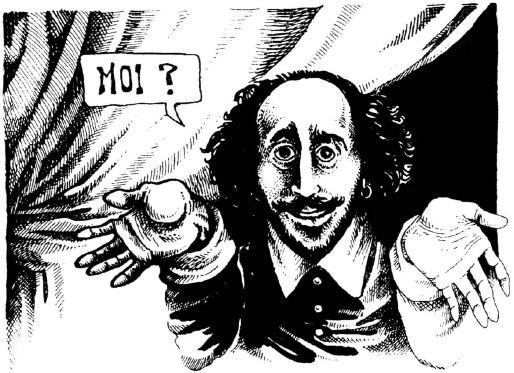

hat do people really know about this guy?
Not much. He was baptized on April 26, 1564, in Stratford-on-Avon, England. His father John was a glover who was named to several important town posts, and may have had financial difficulties later in life. William wasted no time getting started in life. At the age of eighteen, he married Anne Hathaway. The couple had three children: Susanna (born in 1583), and the twins Hamnet and Judith (1585). (Hamnet died in 1596.) Nobody is certain exactly what Shakespeare did between 1583 and 1592. Somewhere along the line, he became an actor and began writing plays. In 1592, a jealous playwright named Robert Greene attacked Shakespeare in print, and made fun of the idea of an actor writing plays. Shakespeare apparently wasnt too impressed by Mr. Greens criticism; he continued to write and perform, and he became an important figure in the London literary and theatrical scene. He published two narrative poems,
Next page


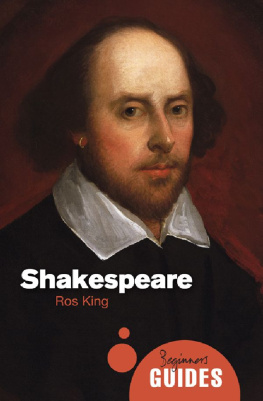



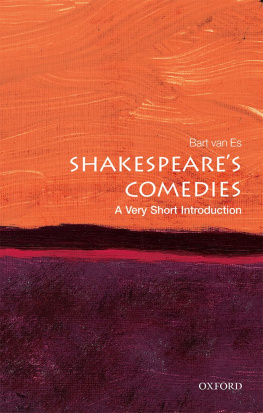
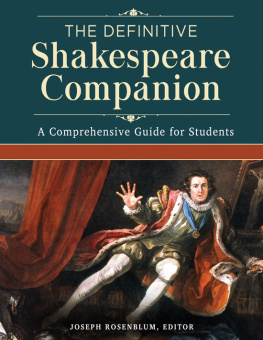
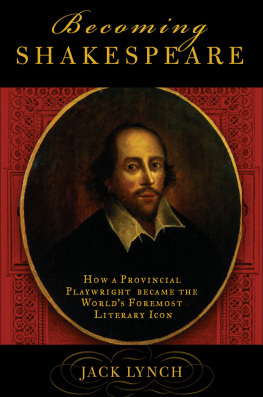
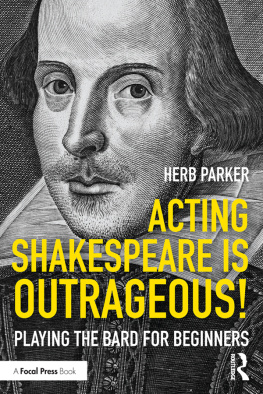
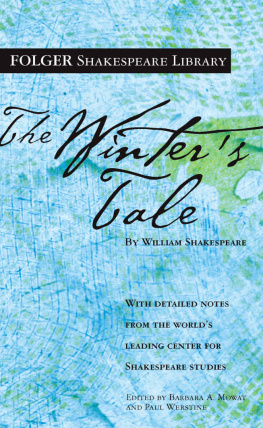



 ROM BRANDON TOROPOV:
ROM BRANDON TOROPOV: LLUSTRATION DEDICATION FROM JOE LEE:
LLUSTRATION DEDICATION FROM JOE LEE:
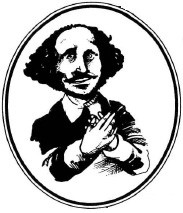
 elcome To
elcome To hakespeare
hakespeare or more than 350 years, William Shakespeare has been the worlds most popular playwright. On stage, in movies, and on television, his plays are watched by eager audiences all over the world. People read his plays again and again for the sheer pleasure.
or more than 350 years, William Shakespeare has been the worlds most popular playwright. On stage, in movies, and on television, his plays are watched by eager audiences all over the world. People read his plays again and again for the sheer pleasure.


 imple, really: For the most part, we will let the stories tell themselves.
imple, really: For the most part, we will let the stories tell themselves.


 Allusions are sort of literary name-dropping; you mention a name from Greek mythology or a phrase from a famous poem, and the truly refined reader gets it.
Allusions are sort of literary name-dropping; you mention a name from Greek mythology or a phrase from a famous poem, and the truly refined reader gets it.
